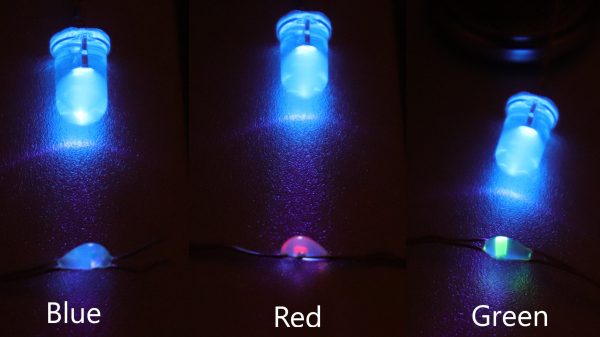[Tim] recently found himself tinkering with a cheap string of LEDs. Far from an advanced, IC-controlled addressable set, these were merely a string with LEDs of four colors that could be switched on and off. However, digging in to the LEDs themselves turned up a curious find.
The LEDs were set up in a parallel/anti-parallel fashion. The two power lines ran the length of the string, with all the LEDs installed across them. If polarity was applied in one direction, the red and yellow LEDs would light up, in the other, the blue and green LEDs would light together.
This raised a question for [Tim], as typically, different LEDs light up at different forward voltages and this can cause issues when running different color LEDs in parallel together. What he instead found was that all the LEDs were actually blue LEDs in their fundamental construction. However, the red, yellow, and green LEDs had all been given a phosphor coating. In these devices, when the blue LED underneath lit up, the phosphor converted the light into the desired color. [Tim] was able to confirm this behaviour by illuminating the phosphor manually using an external UV-A LED.
It’s an interesting choice, but it’s certainly one way of making a multicolored string of LEDs. If you wanna get fancier though, consider studying this tutorial on working with addressable LED strings!
[Thanks to J Peterson for the tip!]











